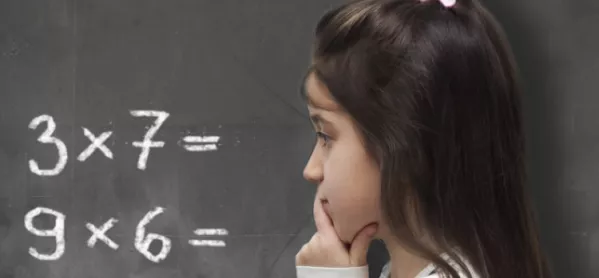When I find myself feeling sorry for a government minister, I fear I’m starting to go soft.
But on Wednesday I pitied schools minister Nick Gibb on Good Morning Britain, in an interview that subsequently hurtled around the Twittersphere. Talking about his new quick five-minute tables test for primary school children, he was put on the spot about his own knowledge of the topic. Resolutely he refused to answer, observing that he knew that trap all too well: he wasn’t going to be sidetracked from the main issue. Damned if he did, and damned if he didn’t - the interviewers had turned the tables on him.
I was interviewed on local radio station that same morning and was miffed not to be asked to recite my eight-times table, which I’m good at. At primary school in the early 1960s, we would happily chant around the class: “Once two is two, two twos are four,” right up to, “Twelve twelves are 144.”
My best maths teacher, a former colonel of artillery in World War Two, taught the 10-year-old me how use a slide-rule (remember those?), to round up or down and apply times tables to gain a rough estimate of the correct answer, if only to ensure the decimal point was in the right place.
I remember every one of those tables and still employ those solidly-learned estimation techniques while obsessively calculating how long the next 8 miles will take me when I’m traveling on the motorway at 70 mph.
Times tables furore
While I still find it easy to translate those chanted tables into mathematical applications, the same is not true of every learner. Merely teaching the tables by rote will not solve this country’s mathematical woes. Teachers must still assess their pupils’ understanding and intervene when the scaffolding of learning, of which tables are indeed a useful part, isn’t coming together as it should.
Policymakers wouldn’t deny that fact: nonetheless, this tables test has caused a furore. Supporters wonder why someone such as the NAHT headteachers’ union’s Nick Brook has come out against it. What harm is there in a simple five-minute test? Surely it’s good to know how one’s pupils are doing?
The trouble is, however, that we Brits invariably fetishise tests. Brook reckons Ofsted will be keeping an eye on the results. Oops! Too easily it moves from a simple matter of seeing whether the kids know their tables to assessing the performance of the school: or checking whether the school is doing tables in the “approved way”. I don’t spend my life looking for conspiracies, but I’m afraid I don’t trust the government not to use this mechanism to enforce the orthodoxy they demand.
Government micromanagement
We’ve already had government insisting that the only way to teach reading is through phonics, rather than using them as one (admittedly valuable) approach of several available. This latest test smacks (not for the first time) of Emperor Napoleon’s centralised approach to education: in 1802 it was said that he knew what every schoolchild in France was learning at any particular time.
Do sanctuary buildings mandarins seek similar control of our school system? I frequently fear they do. This tables test, small enough in itself, is symbolic of government micromanagement: the level of interference is inappropriate, obsessive and, frankly, laughable.
It’s the role of government to set standards - and to support (rather than to bully) schools in working to achieve them. It should treat maths teachers as professionals, supporting and funding the best of training and continuing professional development so that they may constantly hone and develop their skills.
But first, for goodness sake, it should stop telling them how to do their job.
Dr Bernard Trafford is a writer, educationalist and musician. He is a former headteacher of the Royal Grammar School, Newcastle, and past chair of HMC. He is currently interim headteacher of the Purcell School in Hertfordshire. He tweets @bernardtrafford
To read more of his columns, view his back catalogue
Want to keep up with the latest education news and opinion? Follow Tes on Twitter and like Tes on Facebook




